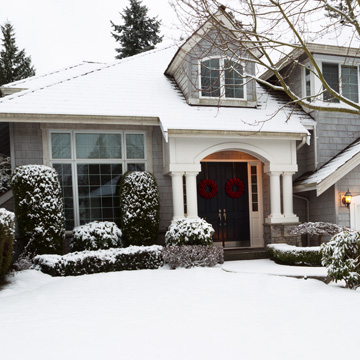 Serving Memphis, Cordova, Germantown & Collierville TN
Serving Memphis, Cordova, Germantown & Collierville TN
Winter temperatures can be harsh and temporarily relieve the barrage of annoying outdoor summer pests. Mosquitos retreat when the temperature drops below 50 degrees, while wasps seem to disappear after the temperature falls and stay below 45 degrees. One question many homeowners ask is whether termites die off during the winter. So today on the blog, we share whether homeowners should be worried about termites in the winter and what you can do to prevent termite damage in your home.
What does winter mean for termites?
Like many other pest species, termites seek shelter, food, and water to survive winter. Unfortunately, part of that search includes your home’s walls. Our Cordova termite control specialists explain that wood-destroying insects remain active through the winter season. Unfortunately, without hibernating, the damage to your home’s structure continues and can compound over time, eventually reducing your property value or causing your home to become a hazard for your family.
What are some common termite signs?
Termites can be challenging to detect as the species is not always visible. You may only detect the reproductive swarmer termites during mating season in the spring. Even then, it can be challenging to track their whereabouts because they immediately retreat underground after finding a mate. In addition, since termites live in the dark confines of the earth and your home’s walls, obvious signs are fleeting, making proper diagnosis and treatment difficult.
Fortunately, our termite control experts in Memphis share a few tips when you’re looking for termite signs around your home.
- Damaged wood – Finding grooved or channeled wood that may or may not have soil contact could indicate you have termite activity. Additionally, wooden structures may have tiny holes the termites use to remove debris from their tunnel.
- Frass – Around areas where damaged wood appears, you may notice a sawdust-like matter around the area. Since termites are tidy and prefer to keep their space clean, they will push rubbish through the small holes where it piles up.
- Mud Tubes – The foundation walls may host a pencil-width dirt tube that termites use to travel undercover out of the sunlight and air from one area to another. You can take a gardening tool, like a shovel, and scrape the tubes away to limit the termite’s travel ability.
- Wings – Discarded wings on the windowsill or around your baseboards indicate termite swarmer activity in your home. When the reproductive termite finds a mate during swarming season, they will generally shed their wings in one home location. Unfortunately, discarded wings are a sure sign of an infestation.
What can homeowners do to reduce the risk of a termite infestation?
Since termites are practically unseen, it can make the treatment seem daunting. However, no matter how “ghostly” termites might be, with the perfect combination of diligence and control, you can minimize your home’s damage. First, homeowners must understand that termites prefer water-damaged wood, even though they feed on solid wood. Therefore, repair water-damaged areas, keep the moisture low in and around your home and remove dirt from wood-to-soil contact areas to reduce the risk of a termite infestation. Lastly, and the most effective, a termite inspection and treatment program provided year-round by a licensed pest control company in Cordova can control the termite population in your home no matter the season.
Termite Control in Cordova and Memphis, Tennessee
The frigid winter temperatures make living things seek shelter for survival. Unfortunately, that includes pests like termites. Although it may be cold outside, they could be working away at destroying your home’s structure and ruining your investment. Therefore, protect your family and home from a termite infestation by calling our Memphis pest control company, AAA Termite and Pest Control, at (901) 737-7378 or contact us online today.

